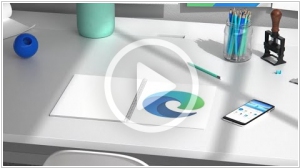Microsoft Edge vs Vivaldi
September 07, 2023 | Author: Adam Levine
17
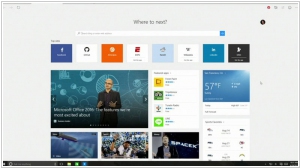
Search faster in the address bar. No need to go to a website to search for pictures of adorable penguins. Stay put and save time by entering your search in the handy address bar. You’ll get search suggestions, results from the web, your browsing history, and favorites right on the spot. Microsoft Edge is the only browser that lets you take notes, write, doodle, and highlight directly on webpages. Add a few secret ingredients to a recipe right on the screen to share with your fellow amateur chefs, collaborate on a new project with your coworkers, or have fun with your kids—the web is your palette.
See also:
Top 10 Web Browsers for Business
Top 10 Web Browsers for Business
Microsoft Edge and Vivaldi are two feature-rich web browsers that cater to different user needs. Microsoft Edge, developed by Microsoft, offers a clean and modern interface with seamless integration across Windows devices. It emphasizes speed, security, and compatibility with popular web standards. Additionally, it provides a range of built-in features like a password manager, immersive reader mode, and easy integration with Microsoft services. Vivaldi, on the other hand, targets power users who crave customization and flexibility. It offers extensive options for personalization, including tab management, keyboard shortcuts, and advanced bookmarking. Vivaldi also prioritizes privacy by blocking trackers and providing a built-in ad-blocker.
See also: Top 10 Web Browsers
See also: Top 10 Web Browsers
Microsoft Edge vs Vivaldi in our news:
2023. Vivaldi launches an iOS version of its browser

Vivaldi, a popular alternative browser, has released its iOS version, following its 2018 launch for Android devices. Due to the current requirement for iOS browsers to use WebKit as the core engine, Vivaldi has adopted the same engine for its iOS version. One of the standout features of Vivaldi for iOS is its desktop-like tab bar, allowing users to easily view open tabs without navigating to a separate tab switcher. If this view isn't preferred, users have the option to disable it in the settings. The tab switcher provides access to open tabs, private tabs, synced tabs across different Vivaldi instances, and recently closed tabs. Additionally, a long-press on the tab switcher enables users to quickly open a new or private tab or close the current tab.
2023. Microsoft is bringing AI Copilot features to Edge
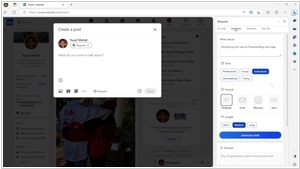
It appears that Microsoft is striving to establish Edge as the leading browser for business. The company recently announced several AI-powered enhancements for its Edge browser, with the most significant being the integration of Microsoft 365 Copilot. This enterprise-focused AI system will be seamlessly embedded within the browser. The main objective of Microsoft Copilot is to leverage AI technology in order to enhance productivity and streamline workflows. By accessing and analyzing various Microsoft data sources such as calendars, chats, emails, and documents, Copilot assists users through conversational requests. For instance, if you ask it to "inform my team about today's updates to our product strategy," it will generate a response based on relevant information from the day.
2023. Microsoft launches new Bing and Edge browser with ChatGPT
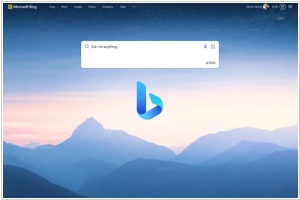
Microsoft is intensifying its efforts to compete with Google by making significant advancements. In an official announcement, the company confirmed the integration of OpenAI's GPT-4 model into Bing, fulfilling long-standing rumors. This integration introduces a ChatGPT-like interaction within the search engine. As expected, the updated Bing now presents a chat option in its toolbar, leading users to a conversational experience reminiscent of ChatGPT. Additionally, Microsoft is launching a fresh version of its Edge browser, incorporating these new AI capabilities into the sidebar. With this enhanced browser, internet users can now leverage AI assistance to summarize search results and engage in conversations with AI chatbots to obtain answers to their queries, among other functionalities.
2022. Microsoft’s Edge browser gets shared Workspaces
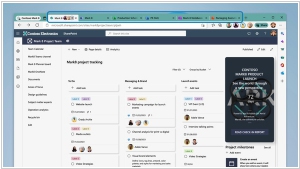
Microsoft has introduced several notable updates to its Edge browser, focusing on enhancing the user experience. Among these updates, Edge Workspaces stands out as a significant feature currently available in preview. This feature enables teams to collaborate by sharing browser tabs. Microsoft emphasizes its usefulness when onboarding new team members to an ongoing project. Instead of sharing numerous links and files, teams can simply share a single link to an Edge Workspace. This workspace will contain various links and files related to the project, offering a centralized and organized collaboration environment. As the project progresses, the shared tabs are updated in real-time, ensuring everyone stays up to date. While similar extensions have been introduced in the past, they have not gained significant popularity. It is worth noting that teams also utilize alternative methods to share links and files, such as through platforms like Confluent and others.
2021. Vivaldi 4.0 launches with built-in email and calendar clients, RSS reader
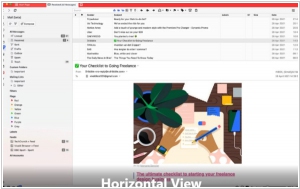
Vivaldi has consistently stood out as one of the more intriguing Chromium-based browsers, primarily due to its commitment to providing power users with a privacy-focused experience. Today, the Vivaldi team is unveiling version 4.0 of its browser, accompanied by an array of exciting new features. Notably, this update introduces the beta versions of built-in mail, calendar, and RSS clients, further enhancing the browsing experience. Additionally, Vivaldi is launching Vivaldi Translate, a privacy-conscious translation service hosted on the company's own servers and powered by Lingvanex. These additions highlight Vivaldi's dedication to providing innovative tools within a privacy-centric framework.
2021. Microsoft Edge now starts up faster and gets vertical tabs
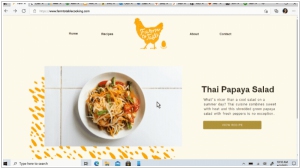
The much-anticipated vertical tabs feature in Microsoft Edge is finally available to all users. Furthermore, the updated Edge browser now offers significant performance improvements, with Microsoft's preliminary tests indicating a potential speed boost of up to 41%. To achieve this, the Edge team has implemented a background loading mechanism that initiates the browser when you sign in, allowing it to remain operational even after closing all browser windows. Should you prefer not to use this feature, it can be easily disabled to suit your preferences.
2020. Microsoft’s Edge browser is coming to Linux
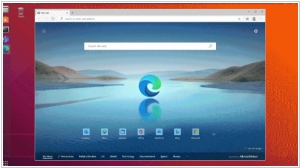
When Microsoft made the decision to transition its Edge browser to the Chromium engine, it made a commitment to make it available on all major platforms. Initially, Linux was not included in that list, but towards the end of last year, it became evident that Microsoft was actively developing a Linux version. As of now, Linux users have the option to obtain the browser either from the Edge Insider website or through their native package managers. Linux users will enjoy the same Edge browsing experience as users on Windows and macOS, along with access to its integrated privacy and security features.
2020. Microsoft Edge gets a Pinterest integration, sidebar search and automatic profile switching
The Microsoft Edge browser is introducing a range of exciting new features. Firstly, it will integrate with Pinterest, enhancing Edge's collections feature. Alongside the Pinterest integration, collections will now allow users to send items to Microsoft's OneNote note-taking tool in addition to its existing Word and Excel integrations. Another notable addition to Edge is Sidebar Search, which enables users to conduct searches within a sidebar without the need to open a new tab in the main browser window. This sidebar will remain visible as users navigate between tabs, making it a convenient feature likely to be emulated by others in the future. Moreover, Edge now offers automatic profile switching, catering to users who frequently switch between personal and business accounts within the same browser on their device.
2018. Microsoft Edge gets password-less authenticator
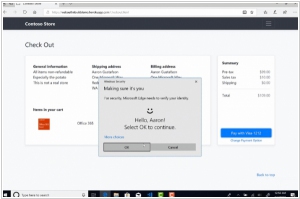
Users of Microsoft Edge now have the convenience of logging into their favorite websites without the need for passwords. Microsoft has introduced a new web authenticator that leverages features such as fingerprints, facial recognition, and special PINs. This authentication method, accessible through Windows Hello, is similar to the authenticators launched by Google and Firefox several months ago. While this feature represents a significant advancement for Microsoft, the company is playing catch-up, as reflected by Edge's current market share of 4.19 percent. The Web Authenticator's virtual nature ensures that if someone gains access to a user's device, they cannot log in since there is no longer a locally stored system to exploit. The entire security process is outsourced to Microsoft as a trusted third party.
2017. Microsoft Edge comes to Android and iPhone
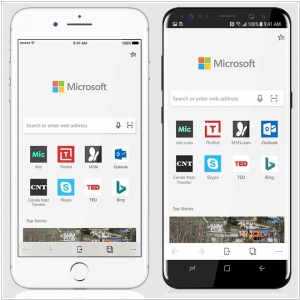
Microsoft has officially launched its Edge Browser for iOS and Android, serving as a successor to Internet Explorer. The mobile version encompasses numerous familiar features from its desktop and tablet counterpart, such as Favorites, Reading Lists, and New Tab Pages. Additionally, Microsoft has introduced some new tools to enhance the user experience. One notable addition is Roaming Passwords, enabling users to synchronize passwords seamlessly across mobile and desktop platforms. Another noteworthy feature is the dark theme, which provides a black desktop interface as an alternative to the default white/gray design, offering a more eye-friendly experience for certain users. The inclusion of Edge represents a significant element of Microsoft's new mobile strategy. Notably, the integration of Edge and Cortana into iOS and Android aims to facilitate smoother interactions between existing smartphones and Windows 10 PCs, benefiting Windows 10 users.



